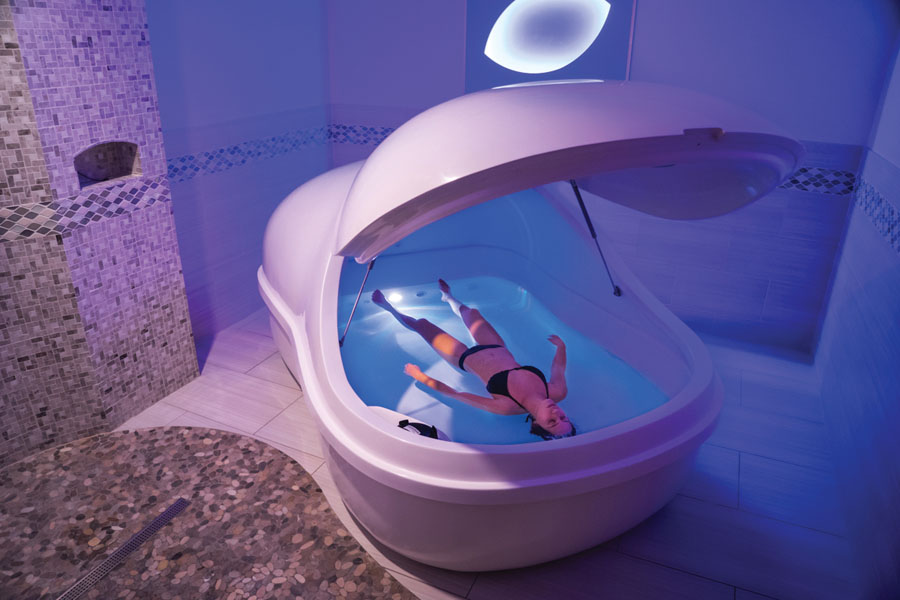In today’s fast-paced world, mental wellness is more important than ever. Stress, anxiety, and depression have become common challenges for many people. Among the various wellness practices gaining popularity, Float Session Therapy stands out as an effective and holistic approach to achieving long-term mental health. Experts widely recommend regular sessions of this therapy due to its wide range of profound Benefits of Float Therapy.
In this blog, we will explore the Health Benefits of Float Therapy, the science behind it, and why consistent use of Float Session Therapy is essential for maintaining mental wellness over time.
What Is Float Therapy?
You might wonder, Float Therapy What Is It? At its core, Float Therapy involves spending time in a Sensory Deprivation Float Tank, also known as an isolation tank or Float Deprivation Tank. The tank is filled with highly concentrated Epsom salt water, which allows you to effortlessly float on the surface. The environment is designed to eliminate external sensory input, no light, no sound, and no physical distractions creating a deeply relaxing and meditative state.
The Purpose of Sensory Deprivation Tank is to remove stimuli, allowing your mind and body to rest deeply and reset.
The Science Behind Float Therapy
So, what’s the Science Behind Float Therapy? Studies show that floating in a sensory deprivation tank reduces cortisol levels (the stress hormone), lowers blood pressure, and increases the release of endorphins and serotonin natural mood elevators. This helps reduce anxiety and depression symptoms significantly.
Moreover, the Effects of Float Therapy include slowing brain waves into a theta state, similar to meditation and deep relaxation, which promotes mental clarity and emotional healing.
Why Regular Float Session Therapy Is Recommended
1. Enhanced Stress Reduction
While one Float Therapy Session provides immediate relaxation, regular sessions amplify the Benefits of Float Therapy by training your nervous system to manage stress more efficiently. Over time, this leads to improved resilience to daily stressors.
2. Long-Term Anxiety and Depression Relief
Float Therapy for Depression and anxiety is becoming widely accepted due to its consistent calming effects on the brain. Repeated sessions help regulate brain chemistry and reduce Float Tank Anxiety by creating a safe space for the mind to reset.
3. Improved Sleep Quality
Experts note that consistent use of Float Session Therapy improves sleep patterns, which are vital for mental wellness. The deep relaxation from the Benefits of Floatation Tanks helps in resetting circadian rhythms and reducing insomnia.
4. Increased Mindfulness and Mental Clarity
By regularly experiencing sensory deprivation, you develop greater mindfulness and focus. This cognitive benefit supports mental wellness in the long run, enhancing emotional balance and reducing mental fatigue.
Comprehensive Benefits of Float Therapy
Let’s break down the Float Session Benefits further to understand the depth of its impact on mental health.
Mental and Emotional Benefits
- Reduction in stress and anxiety levels
- Decrease in symptoms of depression
- Enhanced mood and emotional regulation
- Increased creativity and problem-solving ability
Physical Benefits
- Relief from chronic pain and muscle tension
- Reduced inflammation
- Accelerated physical recovery
- Improved sleep quality
How Does Sensory Deprivation Float Therapy Work?
The unique environment inside the Sensory Deprivation Float Tank creates ideal conditions for the brain and body to enter deep rest states. The lack of external stimuli allows the mind to shift away from constant sensory input, providing a mental “reset.” This is why the Float Tank Therapy Benefits extend beyond simple relaxation to include mental and emotional rejuvenation.
Who Can Benefit From Float Therapy?
The Benefits of Sensory Deprivation Float Tanks are universal, but certain groups may find particular value in regular float sessions:
- Individuals suffering from chronic stress or anxiety
- People with depression or mood disorders
- Athletes seeking recovery and mental focus
- Professionals facing burnout
- Anyone looking for a holistic approach to relaxation
Addressing Common Concerns
Many first-timers worry about how the experience feels or about anxiety inside the tank, commonly called Float Tank Anxiety. However, experts recommend regular Float Session Therapy precisely because it helps overcome these initial fears and deepens relaxation with each session.
What to Expect During a Float Therapy Session
Before your Float Therapy Session, you’ll be briefed on how to use the tank and what to expect. The session typically lasts between 60 to 90 minutes. You float effortlessly in warm water saturated with Epsom salts, in darkness and silence. Many report sensations of weightlessness and deep peace.
Tips for Maximizing the Benefits of Float Therapy
- Schedule regular sessions (weekly or biweekly) to build cumulative benefits.
- Avoid caffeine or heavy meals before sessions.
- Stay hydrated before and after your session.
- Use the time to practice mindfulness or meditation if you like.
Frequently Asked Questions (FAQs)
Q1: What are the main Benefits of Float Therapy for mental health?
A: Float Therapy reduces stress, anxiety, and depression while improving sleep, mindfulness, and overall emotional well-being.
Q2: How often should I do Float Session Therapy for long-term benefits?
A: Experts typically recommend weekly or biweekly sessions to build lasting mental health improvements.
Q3: Is Float Therapy safe for people with anxiety?
A: Yes, though initial sessions might trigger some Float Tank Anxiety, regular sessions usually reduce this over time and promote calmness.
Q4: Can Float Therapy replace medication for depression or anxiety?
A: While not a direct replacement, it is a complementary therapy that enhances mental wellness alongside conventional treatments.
Q5: How does the Float Deprivation Tank work?
A: It removes sensory inputs like light and sound while allowing effortless floating due to high salt concentration, creating a state of deep relaxation.
Q6: What makes Float Therapy for Relaxation different from other relaxation techniques?
A: The sensory deprivation aspect uniquely reduces external stimuli, allowing for unparalleled mental rest and body recovery.
Conclusion
The Benefits of Float Therapy are far-reaching, especially when practiced regularly. From reducing stress and anxiety to improving sleep and mental clarity, Float Session Therapy offers a unique and effective path to long-term mental wellness. The science behind the therapy and the growing body of expert recommendations make it clear why consistent sessions are key to unlocking the full potential of this remarkable practice.
If you are looking for a natural, non-invasive way to support your mental health, regular Float Therapy Sessions could be the solution you need. Embrace the power of sensory deprivation and experience the profound Health Benefits of Float Therapy for yourself.





